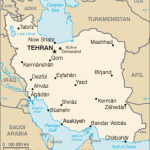Policy
At last week's American Public Health Association (APHA) annual meeting its Governing Council adopted about a dozen new policies to guide the Association's advocacy activities. Over APHA's 140 year history, these resolutions have covered a variety of public health topics, from the 1950 policy supporting fluoridation of public water supplies, the 1960 policy supporting compulsory pasteurization of milk, the 1969 policy calling for American forces to be withdrawn from Vietnam, to the 1982 policy condemning the apartheid policy of the Government of the Republic of South Africa, and the…
So, I saw Paranormal Activity 4 on Monday night. Short review: Pretty disappointing, but I'll still go to Paranormal Activity 5 on opening night.
I am happy to report, however, that my skills as a political prognosticator took a big hit from the debate. You see, one reason I was especially unenthusiastic about watching the debate in real time was that I was certain it would be a disaster for Obama. I figured Romney would just fire off the standard Republican talking points. You know the litany. Obama's weakness led to Benghazi and Syria. He threw Israel under the bus. China and…
In last night’s debate, Mitt Romney said this:
“Syria is Iran’s only ally in the Arab world. It’s their route to the sea.”
This is not the first time Romney has said this. In March, he said, “Maybe one of the few bright spots in the Middle East developments in the last year has been the rising of the people in Syria against Assad. Obviously, as you know, Syria is Iran’s only Arab ally in the region. Syria is the route that allows Iran to supply Hezbollah with weapons in Lebanon. Syria is Iran’s route to the sea …” When he said that in March, the Washington Post called him on it, but…
You've probably noticed that I haven't been blogging much lately. That's partly because this is an especially busy time of the semester. Try grading a thousand midterm exam problems in a few days and see how many brain cells you have left over for blogging. Mostly, though, it's my general unhappiness with the way the Presidential election is going.
I think it's pretty likely that Romney is going to win. For the moment Obama is still maintaining his firewall in Ohio, but the polls have tightened there considerably. Meanwhile, Florida seems to be solidly red at this point, and the polls in…
by Kim Krisberg
At Palm Beach Groves in Lantana, Fla., a small, seasonal business that ships fresh citrus nationwide, employees have regularly voted between getting a raise or keeping their employer-based health insurance. Health coverage always wins, as many employees' ages and pre-existing conditions would have made it nearly impossible to get coverage on their own.
In her 12 years with Palm Beach Groves, general manager Louisa McQueeney has seen insurance premiums go up anywhere from 12 percent to 32 percent a year. Coverage for her family alone — herself, her husband and daughter — was $1…
Scientific American evaluates the candidates on their answers to Sciencedebate 2012 and evaluates ideology-based denialism as a whole:
Today's denial of inconvenient science comes from partisans on both ends of the political spectrum. Science denialism among Democrats tends to be motivated by unsupported suspicions of hidden dangers to health and the environment. Common examples include the belief that cell phones cause brain cancer (high school physics shows why this is impossible) or that vaccines cause autism (science has shown no link whatsoever). Republican science denialism tends to be…
On July 9th, 2012, Anoka High School student Justin Aaberg committed suicide. Here in Minnesota, when a kid commits suicide we don't talk about it; often the other kids in the school are never told. There's just a funeral service and a yearbook page but no discussion, no action, no response. But, Justin was one of several kids who successfully took their own lives in the Anoka Hennepin School District, the largest school district in Minnesota, and they were among a much larger group who came close to doing so, because they were gay or thought to be so, and were thus bullied and shunned and…
The current Conservative government of Canada isn't too fond of Canadians having access to information. It's inconvenient for them because I guess a well-informed citizenry would be more likely to call them on the various shenanigans they've been indulging in.
A good general take on the situation is Allan Gregg's recent speech, 1984 in 2012 – The Assault on Reason:
I have spent my entire professional life as a researcher, dedicated to understanding the relationship between cause and effect. And I have to tell you, I’ve begun to see some troubling trends. It seems as though our government’s…
by Kim Krisberg
For years, Peter Rosenfeld was looking for an effective way to treat what doctors had diagnosed as severe and intractable migraines. He'd heard of medical marijuana, but thought it was a joke — that it was just a way for people to justify their marijuana use.
Then in 2000, the New Jersey resident enrolled in a California program studying the effects of medical marijuana. It was a blind study, so Rosenfeld didn't know whether he was one of the participants being given marijuana or not. It turns out he was. And it worked.
"Marijuana was the first effective treatment that I had…
The AP reports a dude went to the headquarters of hate group based in Washington, DC, and shot a security guard:
Federal authorities say Floyd Lee Corkins II told a guard at the Family Research Council, "I don't like your politics" before shooting him in the arm. The guard and others helped subdue Corkins, who was taken into custody. …
Authorities found a box of ammunition and 15 Chick-fil-A sandwiches in his backpack.
Now, I understand that – as with the last month's mass shootings in Aurora, CO, the Sikh gurdwara in Wisconsin, and near the Texas A&M campus – the time is not right…
One thing I have learned from more than a decade of teaching mathematics is that it is very easy to bamboozle people with numbers and equations. I do it all the time in my calculus classes, and that is when I am bending over backward to be as clear as I possibly can.
Creationists are especially unscrupulous about exploiting this fact about mathematics. At one creationist conference I attended, the speaker went on for close to an hour spouting the sheerest nonsense about information theory and probability. He received a standing ovation for his troubles. Another time, in a small,…
One issue that keeps coming up time and time again for me is the issue of screening for cancer. Because I'm primarily a breast cancer surgeon in my clinical life, that means mammography, although many of the same issues come up time and time again in discussions of using prostate-specific antigen (PSA) screening for prostate cancer. Over time, my position regarding how to screen and when to screen has vacillated—er, um, evolved, yeah, that's it—in response to new evidence, although the core, including my conclusion that women should definitely be screened beginning at age 50 and that it's…
Like so many other skeptics, I just returned from TAM, which, despite all the conflict and drama surrounding it this year, actually turned out to be a highly enjoyable experience for myself and most people I talked to. As I've been doing the last few years, I joined up with Steve Novella and other proponents of science-based medicine to do a workshop about how difficult it is to find decent health information on the Internet, and how the "University of Google" all too frequently puts quackery on the same level as reliable sources of medical information because all that matters for most search…
Continuing with your alas-all-too-regular diet of not-science here. But there is so little real going on. Anyway, Eli is pushing Machiavelli, and a while ago PK asked "How would Hobbes organize society to avert climate change?". I had no answer, so I ignored the question, but now return to it.
Hobbes has little to say directly about policy: his focus is on the justification and structure of government. Read Leviathan. He is a great believer in a strong central authority, and the meaningless of contracts made without a power to enforce them. So stuff like Kyoto would be out. Hobbes view is…
The question, which is the better man, is determinable only in the estate of government and policy, though it be mistaken for a question of nature, not only by ignorant men, that think one man's blood better than another's by nature; but also by him, whose opinions are at this day, and in these parts of greater authority than any other human writings (Aristotle). For he putteth so much difference between the powers of men by nature, that he doubteth not to set down, as the ground of all his politics, that some men are by nature worthy to govern, and others by nature ought to serve. Which…
In which we look back at a very political, perhaps excessively political year on the blog.
------------
I'm picking up the pace of my recap because I'd like to get through as much as possible before the actual tenth anniversary of the blog this Friday. I won't get through every year, but I'm going to try to do as many as I can.
2007-2008 was a somewhat problematic year for me. On the one hand, there was some pretty good stuff in there, but there were also a number of ugly political squabbles. This was around the time I stopped even trying to read all of ScienceBlogs, and trimmed my RSS…
Future U: The stubborn persistence of textbooks
Daunt: library e-lending "disruptive" to high street
A "License to Read": The Effect of E-Books on Publishers, Libraries, and the First Sale Doctrine
Inside the Georgia State Opinion
The GSU decision -- not an easy road for anyone
The GSU decision
E-Reservations
The Greatest Threat to Amazon May Just Be Libraries
Technology is a Double-Edged Sword
In Defense of the New York Public Library
Colloquium on Rethinking the Future of Scientific Communication
Why Nikola Tesla is the greatest geek who ever lived
OLA Statement on Copyright for the…
The following article is mirrored from TomDispatch.com. I thought that while we are watching the weather heat up, we should not forget that geo-politics heats up with it.
Six Recent Clashes and Conflicts on a Planet Heading Into Energy Overdrive By Michael T. Klare
Conflict and intrigue over valuable energy supplies have been features of the international landscape for a long time. Major wars over oil have been fought every decade or so since World War I, and smaller engagements have erupted every few years; a flare-up or two in 2012, then, would be part of the normal scheme of…
Continuing the blog recap series, we come to the "split year" of 2005-2006. The blog was initially launched in late June, so that's when I'm starting the years for purposes of these recaps, but ScienceBlogs launched in January 2006, so this year was half Steelypips and half ScienceBlogs. This post will cover the Steelypips half, June-January; I'll do the ScienceBlogs stuff in a second post, once I figure out the best way to go through those posts (the ScienceBlogs archives aren't set up well for reading straight through).
In reading through this, I was amused to discover this pan of Seed's…
As is the case with most things that are important, we as a society have done a very bad job of developing an effective conversation about Global Warming. The vast majority of electronic and real ink that I see spent on the discussion of Global Warming (outside of the peer reviewed literature) is not even about climate or climate change. Rather, it is about talking about climate change, the politics of climate change, critique of the rhetoric about climate change, clarification, obfuscation, complaining, accusing, yelling or belly-aching, and the occasional threat of violence. And today,…



